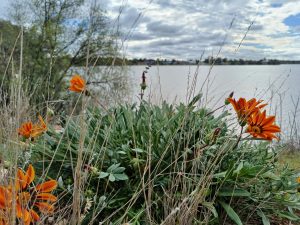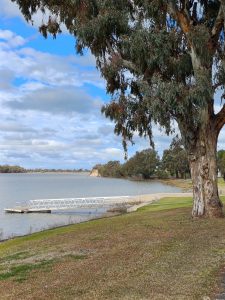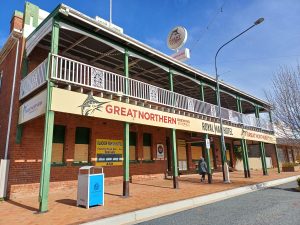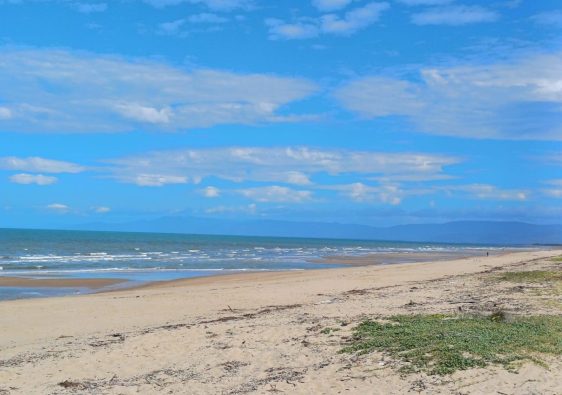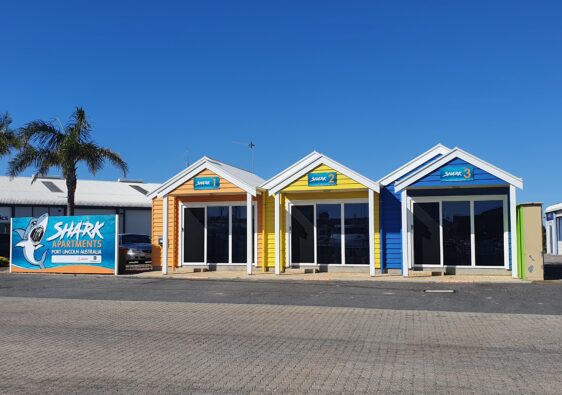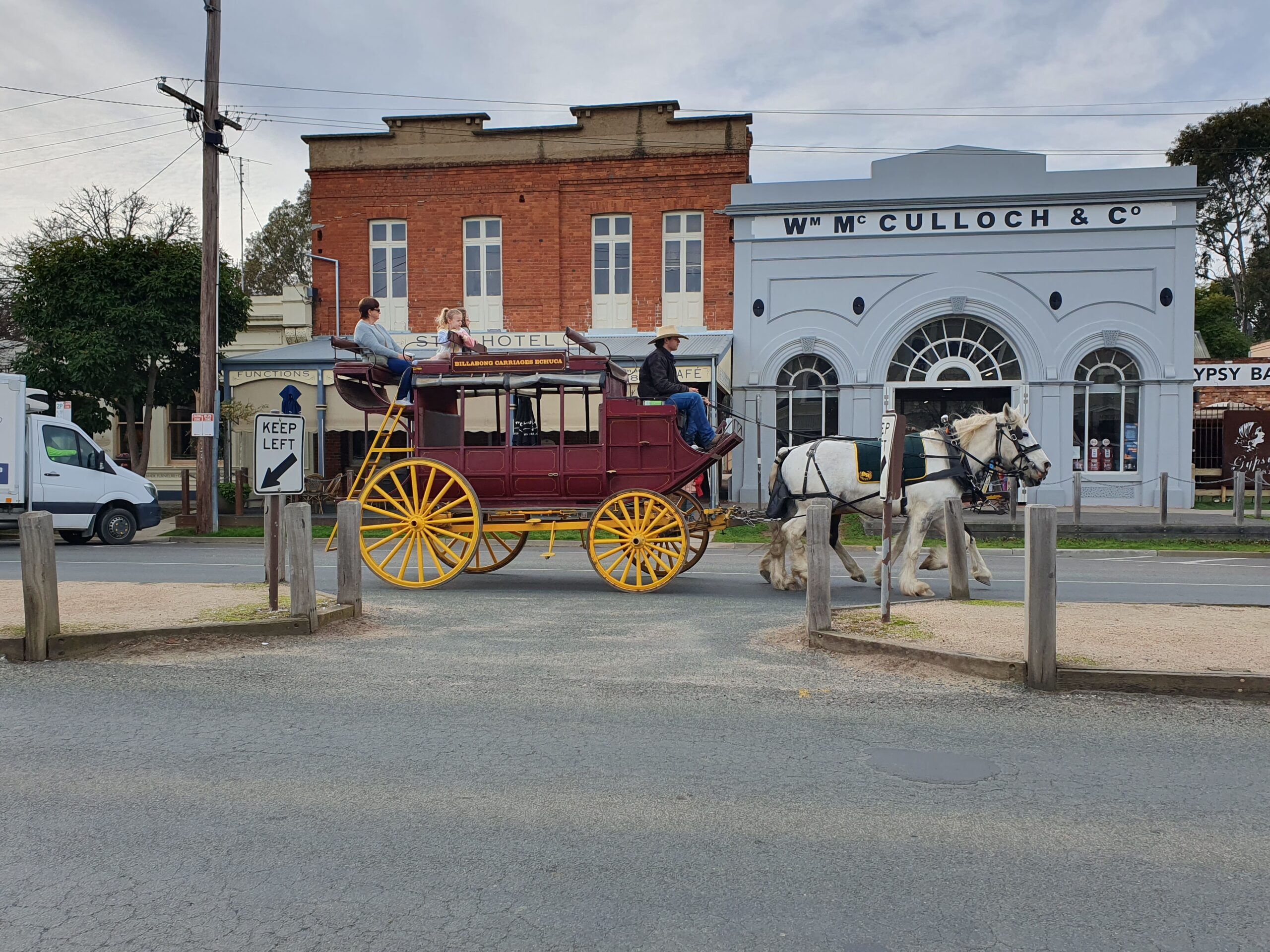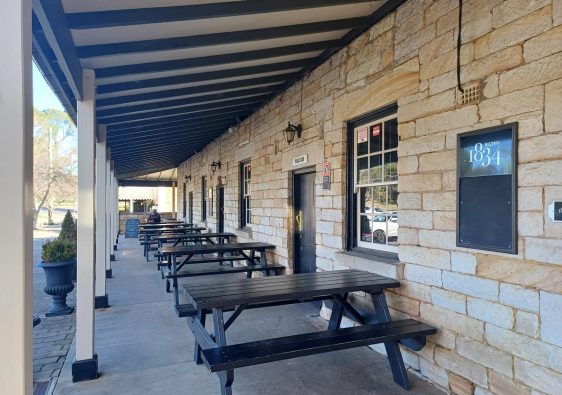Finally hit the road north for some sun. We had intended to leave a month earlier. We applied for our pension 12 months ago, and endless back and forth with Services Australia, and having to re-apply after our initial rejection, we were finally give the thumbs up at the end of June. Oh joy of joys to look forward to every second Wednesday.
Celebrated with tea & drinks at the Dandenong RSL, of course we ordered a Seniors Meal, now that we are pensioners.
11.00am Tuesday, leaving a wet Melbourne, to tackle the last of Melbourne’s busy roads for 8 weeks. Once we hit Broadford the roads were dry, and by the time we stopped for a cuppa and a gluten free banana cake Sarah had made just outside Shepparton, we were bathed in sunshine.
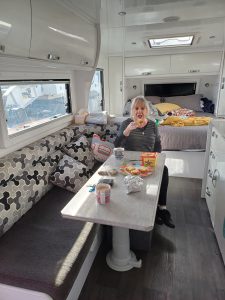
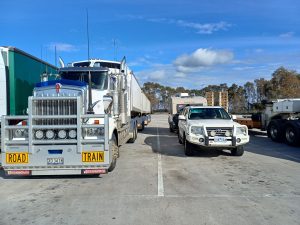 Parking with the big boys for morning tea.
Parking with the big boys for morning tea.
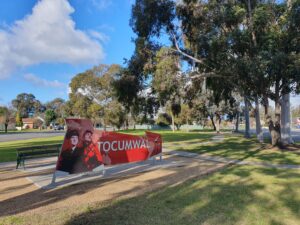
First stop for the night is Tocumwal. Situated 270klm north of Melbourne. No diesel heater, so powered sites for the first 4 days until we hit Queensland, then some free camping. We had tea in the van, as we are going to head into town to watch the Rugby State of Origin in a local pub. The Farmers Arms and the local golf club, offer a pickup and drop off service. After 6pm, we decided to walk through town as we decided on the Farmers Arms. This was approx 2klm, on the far side of town from the park.
AFL is still the main attraction this close to the border, but plenty of support for the rugby. We were with the Maroons, due to the Melbourne Storm, and the large number of Queenslanders who play for QLD. Also Billy Slater is the coach.
Tough game and a good win for NSW. Shane, a Melbourne boy, came up to Tocumwal during covid to look after his mum, and decided to stay. He was keeping us up to speed with all the rules. Sue the local head bar lady, drove us back to camp on the Farmers Arms bus.
With a population of 2700 people, Tocumwal is an idyllic town perfect for fishing, camping, and relaxing by the river. All along the riverbanks are majestic red river gums. The Murray River, that flows through Tocumwal, is an historic town, established in the 1860’s. It has a hot dry climate, averaging 52 rainy days a year.
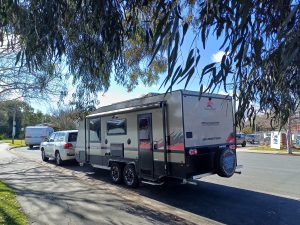 Break in Jerilderie.
Break in Jerilderie.
Tonight staying in Griffith. This is a major regional city in NSW. pop. 21000
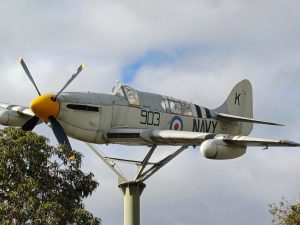 Fairey Firefly.Navy WWII
Fairey Firefly.Navy WWII 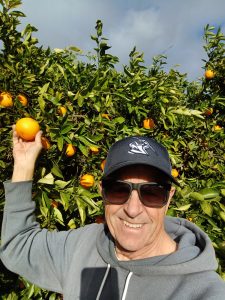 This Citrus Country
This Citrus Country
Griffith and other towns were created as part of the New South Wales State Government’s Murrumbidgee Irigation project, a plan to supply irrigation from the Murrumbidgee River to open up western New South Wales for farming.
Griffith, and nearby Leeton, was designed by Walter Burley Griffin in 1914, an unusual geometric pattern centred on a set of circular streets, with broad avenues radiating out in an octagonal arrangement. Very similar to Canberra, also designed by Walter Griffin.
Lake Wyangan is a short drive from town. It is a former gypsum mine and natural swamp area- here you will find sheltered picnic areas, barbecue facilities, toilet facilities and large areas of grassed reserve. There is ample space for a activities, or ride a bike, that is connected to the town on a wonderful bitumen buke path.
Located throughout the picnic area are numerous animal enclosures, home to roosters, hens, peacocks, geese, kangaroos and deer.
At the shore’s edge is a jetty and free boat ramp access.
Citrus and other fruit and vegetables are grown in abundance around Griffith. Then large rice farms. Vineyards were established early, and wineries followed.
Standard drink in one of the local pubs, then home for a bite to eat and a movie.
Head off about 10am to Lake Cargelligo approx 150klm from Griffith.
Lake Cargelligo is where you first notice authentic real deal red dirt, large natural inland lake, water sports and based near the Lachlan River, one of the main river systems of Australia. Like many Australian outback towns, gold was discovered her in the early 1870’s, alas, it was not a large reef, and eventually it shut down. The lake, although natural will dry out in drought times. They built levees on one side to increase the water retention for the town and surrounding districts. In 2010 it was dry after a period of drought conditions.
